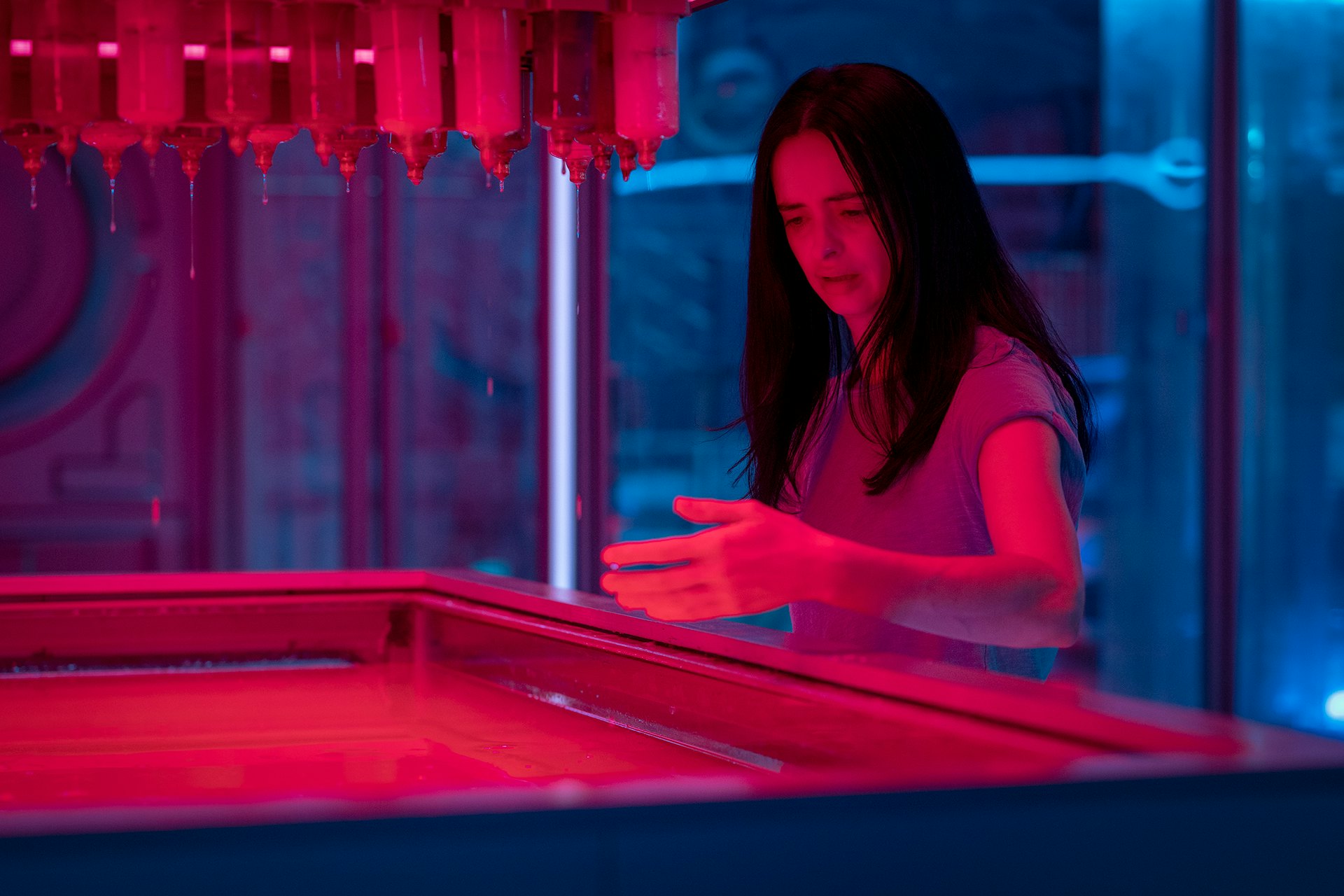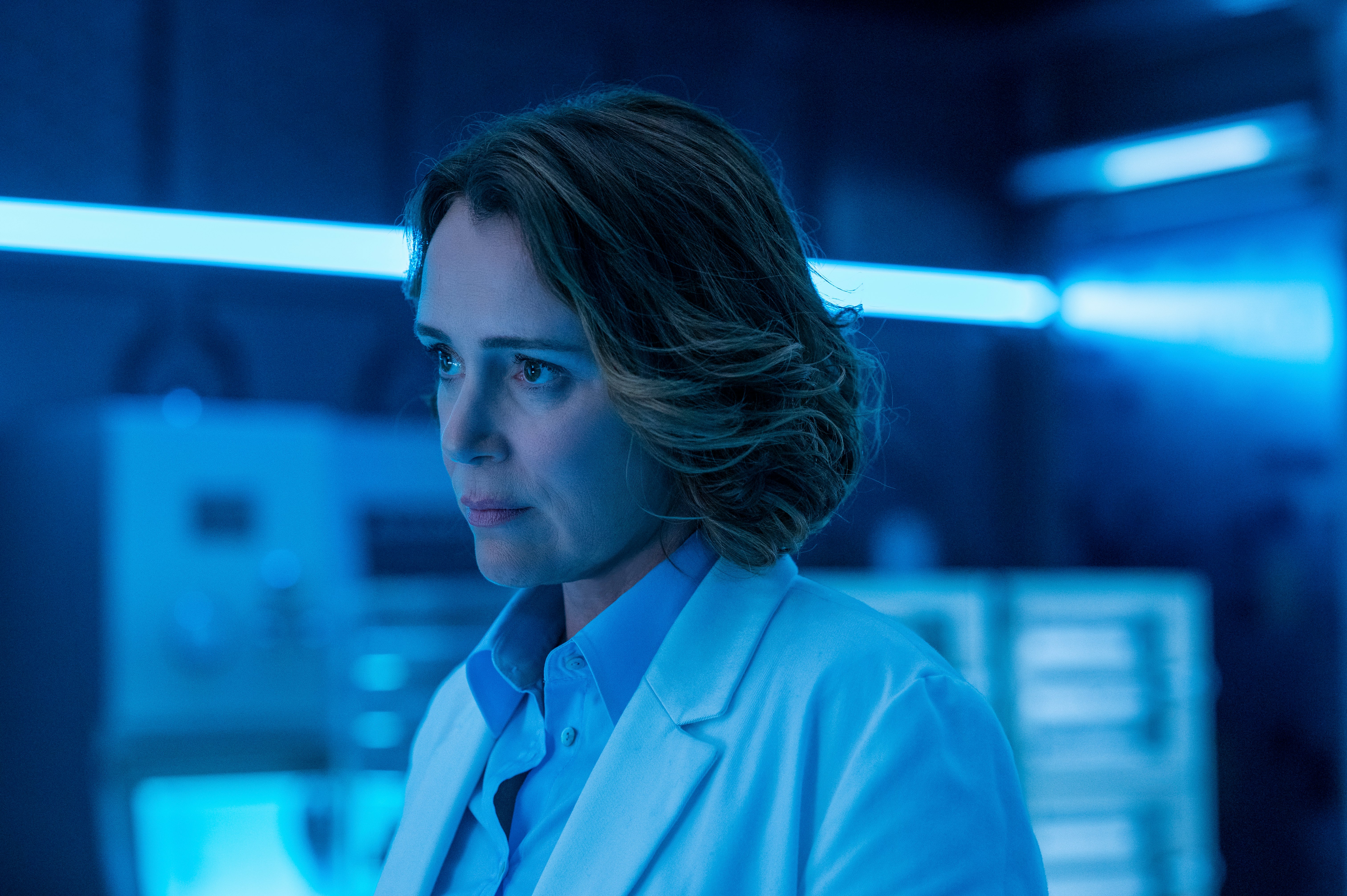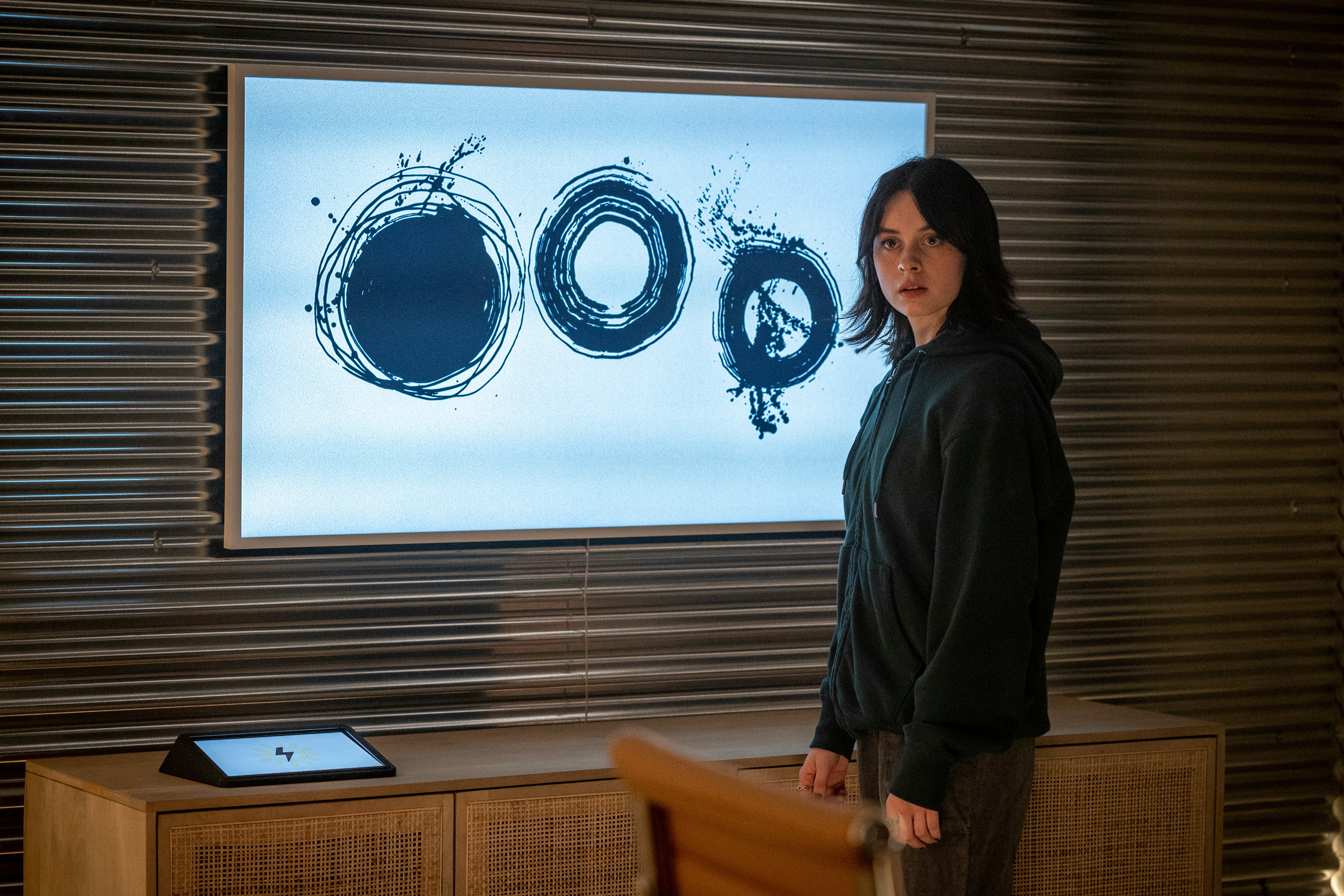
Lucy’s (Krysten Ritter) life begins on a plush leather couch. She wakes up as if from an afternoon nap, but it doesn’t take her long to realize that something is amiss — and it’s not just because of the friendly, frazzled doctor (Keeley Hawes) hovering over her and probing her memory. As Lucy quickly realizes, she has no memory to speak of. Naturally, she bolts in search of answers, stumbling out of the fixed set that poses as her apartment and right into a lab awash with pink and blue light. After examining a vat of fluorescent pink goo, her doctor calmly clears the air: she’s got no memory because she was just printed from a sample of human tissue. She’s not quite a clone, but a “print-out” of a now-deceased original.
So begins the slightly-pedestrian mystery at the center of Orphan Black: Echoes, the quasi-spinoff, quasi-sequel to its Canadian predecessor. Compared to the original Orphan Black, it feels unbearably tame: Orphan Black was the perfect show at (almost) the perfect time. It came right at the cusp of Peak TV, even if it failed to win the universal praise it so rightly deserved. It also had the privilege of a perfect actress, Tatiana Maslany, who portrayed dozens of distinct clones across five seasons.
If Orphan Black was a once-in-a-generation phenomenon, then Orphan Black: Echoes is exactly what it claims to be — a vapor of something much bolder. If it’d been introduced in a vacuum, that might not have been the case. It’s got a competent lead (and executive producer) in Ritter, who’s making a welcome return to the small screen after a great turn in Jessica Jones. Her supporting cast is similarly game, and Echoes does find clever ways to explore Orphan Black’s bigger blindspots with new themes. Unfortunately, the reason it exists is the very reason it falls flat: Too often does Echoes tether itself to its host, robbing a perfectly-good sci-fi thriller of any original ideas.
Echoes does fortunately pick up after a two-year time jump. After escaping from her creators, Lucy has carved out a quaint new life off-grid — she’s found a stable, honest job and a reliable (if boring) love interest in the hunky Jack (Avan Jogia). Her attempts to recover her memories — or, at least, the memories of the woman she was “printed” from — have delivered patchy results. All she has is the memory of a bloody crime in her youth, and it’s still coming back in flashes. She’s all but given up on her past, but the shady organization that created her obviously doesn’t share that sentiment.
When a hired goon shows up out of the blue to terminate her, Lucy commits to uncovering the truth once and for all. She heads to her old stomping grounds, a slightly futuristic Boston, with her boyfriend and his daughter (Zariella Langford-Haughton) in tow. Once Ritter dawns an outfit reminiscent of her Jessica Jones uniform and finally gets to work, the series finally finds a true groove.

What Echoes lacks in multiple identical clones, it slightly makes up for it with a Logan-esque premise. Lucy’s search for the truth quickly brings her face-to-face with an angsty teen, Jules (Amanda Fix), with whom she bears a striking resemblance. They also share a unique scar in the exact same place, a mark that becomes an identifier for “print-outs” like Lucy. It doesn’t matter who cloned them so much as why they were printed, but even those motivations feel muddy in a series with so many other moving parts. Either way, their odd couple, sibling-esque dynamic brings Echoes that much closer to its own identity.
Echoes also expands on some of the lesser explored parts of Orphan Black. Langford’s Charlie serves as a smarter complement to the original series’ At-Risk Child, Kira. She plays a much more active role in the action here, but not without taking on some serious trauma. Kira herself also plays a major role in the spinoff (Echoes takes place 40 years after Orphan Black, but don’t get your hopes up for a Maslany cameo), all grown up and still reckoning with her own traumas. It’s an interesting callback to the original series and its heroines, who did everything they could to keep Kira from danger. Paired with Jules, whose stony façade barely conceals her own confusion and angst, Echoes has the makings of a compelling drama. If only it didn’t take so long to get to the point.

Echoes wants to be a complement to the original Orphan Black, but it lacks both the edge and the urgency of its predecessor. It has no pressure to prove itself: its story is stretched thin across 10 episodes, and its characters are similarly stalled in their pursuits. It might be at its best when it allows Ritter to fall back on the fierce archetypes she’s embodied in past projects, but not even Lucy can fully hold this story together.
It doesn’t help that its near-future world is frustratingly ill-defined. Boston circa 2054 is pretty much the same as Boston in present-day, save for some conveniently-placed touchscreens, more all-electric vehicles, and the odd solar panel. It’s disappointing to step into a world where one could easily print out a human organ — or a whole person — but is otherwise so visually, conceptually drab. Perhaps that’s the point of Echoes, a show more focused on the internal and the psychological. But with cerebral sci-fi becoming more commonplace by the minute, Echoes needs something to help it stand out... and its interpersonal conflicts aren’t quite enough to cut through the noise, much less justify its existence as a sequel.







